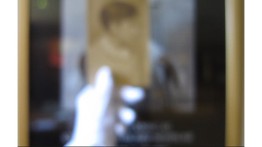Barbara Hammer: Canceled from Memory
Tuesday, September 16, 2014, 7 - 8:30pm

Image courtesy of Barbara Hammer
Visual artist Barbara Hammer retrieves archival scraps and fragments revealing historical memory loss that she reinserts in her work through imaginative fiction, suggestive montage and open abstraction. This free public lecture draws on 40 years of practice that includes film, video, performance, installation, photography and collage.
Working primarily in film and video, Barbara Hammer's work reveals and celebrates marginalized peoples whose stories have not been told. Her cinema is multi-leveled and engages an audience viscerally and intellectually with the goal of activating them to make social change. She has been honored with four retrospectives in the last three years: The Museum of Modern Art in New York City, Tate Modern in London, Jeu de Paume in Paris, and the Toronto International Film Festival.
She is most well-known for making the first explicit lesbian film in 1974, Dyketactics, and for her trilogy of documentary film essays on queer history: Nitrate Kisses (1992), Tender Fictions (1995) and History Lessons (2000). She is currently a Guggenheim Fellow (2013-14) working on a film on Elizabeth Bishop.
Barbara Hammer teaches each summer at The European Graduate School in Saas-Fee, Switzerland. Her work is represented by the gallery Koch Oberhuber Woolfe in Berlin, Germany. She lives and works in New York City and Kerhonkson, New York.
Barbara Hammer appears as part of the Interdisciplinary Seminar, created as a discussion series on artistic practice for the students of the Cooper Union School of Art and the creative community that surrounds them. Lectures are free and open to the public.
Located in the Frederick P. Rose Auditorium, at 41 Cooper Square (on Third Avenue between 6th and 7th Streets)




